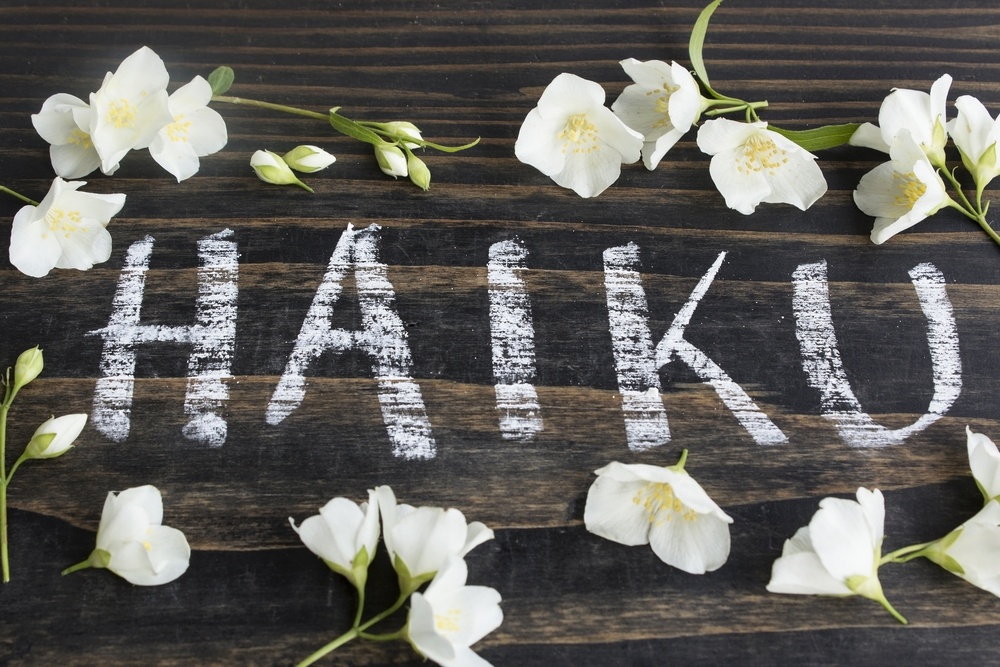Reason appeals to a mind that’s always divided – right or wrong, good or bad, valid or invalid.
Poetry finds its nourishment in a mind that believes in unity – both/and, good/good, yes/yes.
Zen makes its home in a mind that has retained its rational thought and also has the beauty
of a poetic spiritual sensibility.
It’s the poetic spiritual sensibility of Zen that we shall be looking at in this article, a sensibility that is resonated in Haiku, a traditional form of Japanese poetry, built on three sentences only.
Oneness
Zen finds the root cause of suffering in our sense of separation, in feeling “alone and afraid in a world I never made.” And the process of writing a Haiku involves easing this suffering by realising the oneness of our nature and that of everything surrounding us. It is only when a poet and his muse become one, that a Haiku (poem) comes to life.
the sound of hail —
I remain, as before,
an old oak
– Basho
Connectedness
To connect with something, we need to flow in its direction and not away – is what Zen practitioners believe. To write a Haiku, we need to immerse ourselves in something, not drain ourselves of it. We need to be one with that something.
they spoke no word,
the host, the guest
and the white chrysanthemum
– Ryota
Emptiness
Bodhidharma, the founder of Zen, taught that the most fundamental truth in Buddhism is “vast emptiness and nothing holy”. This teaching has been backed even by quantum physics – atoms, the basic element of the Earth, have 99.99% empty space.
midnight – no waves, no wind
the empty boat is
flooded with moonlight
– Dogen
Uniqueness
To make a muse out of the mundane is what both Zen and Haiku preach. It is often the overlooked that needs to be looked at and appreciated.
the wind brings
enough fallen leaves
to make a fire
– Ryokan
Concentration
In order to realise the above mentioned teachings, the practitioners of Zen need to, first of all, concentrate. And same is the case with Haiku – to express the beauty of something in just three sentences, one needs to first pay complete attention to it.
peeling pears —
sweet juice drips
from the knife blade
– Shiki
If there’s anything that can aptly capture the enriching essence of Zen, it is a Haiku. And it is the teachings of Zen which can bring the best out of this three-sentence poetry. Both shine in each other’s presence.





